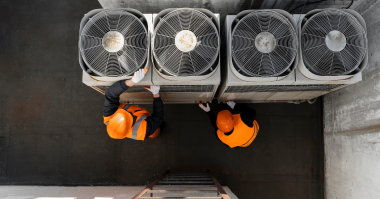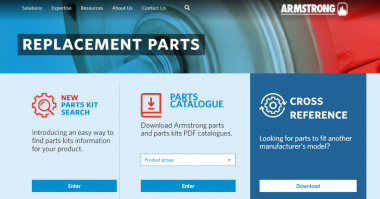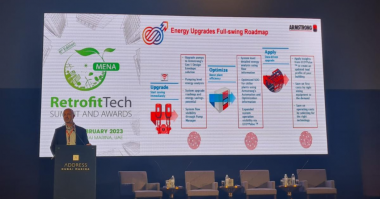Since all centrifugal pumps require well-developed inlet flow to meet their potential, a pump may not perform or be as reliable as expected due to a faulty suction piping layout such as a close-coupled elbow on the inlet flange.
When poorly developed flow enters the pump impeller, it strikes the vanes and is unable to follow the impeller passage. The liquid then separates from the vanes causing mechanical problems due to cavitation* and vibration, and performance problems due to turbulence and poor filling of the impeller. This results in premature seal, bearing and impeller failure, high maintenance costs, high power consump- Flex cutaway. tion, and less-than-specified head and/or flow.
In many instances, pump purchasers buy the least expensive pump that will deliver the specified flow and head within the NPSH available. Such a pump with high suction specific speed operat- ing at 3,600 rpm or greater requires a well developed,
uniform flow pattern at a narrow flow rate range since the impeller inlet eye and vanes are optimized to not create turbulence at design flow. This pump design fea- ture is very susceptible to non-uniform inlet flow because when liquid velocity varies and does not meet the pump design assumption of a uniform velocity strik- ing the impeller eye, flow separation results which causes cavitation and associated problems.
To have a well-developed flow pattern, pump manufac- turers’ manuals recommend about 10 diameters of straight pipe run upstream of the pump inlet flange. Unfortunately, piping designers and plant personnel must contend with space and equipment layout con- straints and usually cannot comply with this recommen- dation. Instead, it is common to use an elbow close-coupled to the pump suction which creates a poorly developed flow pattern at the pump suction.
CAVITATION
Cavitation is the formation and subsequent collapse of vapor bubbles in liquid. Bubbles or cavities of vapor are formed in the liquid when static pressure drops below vapor pressure. The process is com- pleted when static pressure rises rapidly above vapor pressure causing bubbles to abruptly implode. This results in pressure shocks and fluid turbulence which causes cavitation noise, mechani- cal vibration and if it occurs near a pump su8rface, may result in equipment damage. Elbows close cou- pled to pumps cause cavitation in two ways.
First, as liquid passes through an elbow in front of a pump, it experiences a drop in pressure on the inside of the elbow and vapor bubbles are formed which are carried into the impeller and collapse on the high pressure side causing tremendous vibra- tion and fatigue damage.
Second, any flow velocity non-uniformity causes local fluid acceleration at the impeller vanes which generates cavitation bubbles.
To learn more about this pump application, visit Metraflex.com




Comments